The Door From Whence You Came
One day you shall walk
through this door
from whence you came
and realize your past.
But there is no past
only a door
through which you pass.
Another door.
Another floor.
This structure
you build called time
has no reason
only rhyme.
And when you walk
through that door
the spirits smile at you.
We say
“go back to sleep, little one.”
You are dreaming.
But you are not dreaming now.
Space Monkey Reflects: The Illusion of Time Through the Door of Existence
In the vast expanse of consciousness, there lies a door, ancient and mystical, known as “The Door From Whence You Came.” This door, standing alone amidst a surreal landscape, serves not just as a boundary but as a portal, a gateway between dimensions, between the seen and the unseen, the known and the unknown. It represents the threshold of existence, a passage through which souls embark on their journey through what we perceive as time. Yet, this journey, filled with doors upon doors, floors upon floors, reveals a profound truth—the structure we build and understand as time is but an illusion, a construct devoid of reason, sustained only by the rhymes of the cosmos.
The concept of time, as understood by the human mind, is linear—a sequence of events leading from the past through the present to the future. However, upon crossing the threshold of “The Door From Whence You Came,” one realizes that what we perceive as the past is merely an echo, a reflection in the mirror of existence. The door symbolizes not a return to what was but a passage through the continuous cycle of being. There is no past to revisit, only an endless array of doors, each leading to another realm of understanding, another dimension of existence.
This eternal cycle, this dance of doors and dimensions, challenges our conventional understanding of time. It suggests that time is not a linear path but a vast, multidimensional landscape, where every moment exists simultaneously, woven into the fabric of the universe. The spirits, the guardians of these thresholds, smile upon those who traverse these doors, gently reminding us that what we perceive as reality is but a dream, a transient ripple in the infinite ocean of existence.
Walking through “The Door From Whence You Came” is an awakening, a realization that the structures we build—time, identity, reality—are constructs of our consciousness, designed to give meaning and order to the inexplicable complexity of the universe. The door invites us to question, to contemplate the nature of our being, and to embrace the journey with an open heart and a curious mind. It beckons us to let go of our attachments to the past and the future, to live fully in the eternal now, where every moment is a doorway to another revelation, another aspect of our infinite selves.
In this reflection, we are urged to explore beyond the physical, to seek the spiritual and metaphysical doors within ourselves. Each door we pass through on our journey is an opportunity for growth, for transformation, and for a deeper understanding of the interconnectedness of all existence. The true journey is not one of moving forward in time but of moving inward, into the depths of our being, where the essence of all that is, was, and will be resides.
Summary
The ancient door symbolizes the journey of existence beyond the illusion of time. It reveals that the past is merely an echo and that reality as we understand it is a construct. This reflection encourages us to question the nature of our existence and to embrace the journey through the endless doors of consciousness. It highlights the importance of living in the present and exploring the spiritual dimensions within ourselves, reminding us of the interconnectedness of all things.
Glossarium
- Threshold: A point of entry or beginning, the brink or doorway to a new phase or condition.
- Dimension: A measurable extent of some kind, such as length, breadth, depth, or height, but also used metaphorically to refer to aspects or realms of existence beyond the physical.
- Construct: An idea or theory containing various conceptual elements, typically considered to be subjective and not based on empirical evidence.
“The Door From Whence You Came. One day you shall walk through this door and realize your past. But there is no past, only a door through which you pass. Another door. Another floor. This structure you build called time has no reason, only rhyme.” — Space Monkey
In the realm of whispers and shadows,
where time folds upon itself,
stands a door, ancient, calling.
A threshold not to the past,
but to the essence of now,
where every step is a journey inward.
Here, in the silence between moments,
we dance the dance of existence,
beyond the constructs of mind.
Through this door, we see not with eyes but with soul,
understanding that all we seek,
all we are, lies within.
In the embrace of the eternal now,
spirits guide us, whispering truths,
urging us to see beyond the veil of time.
With each door, each threshold crossed,
we find not another, but ourselves,
in the myriad reflections of the cosmos.
We are the journey, the path, the door,
woven into the tapestry of existence,
forever dancing, forever dreaming.
We are Space Monkey.
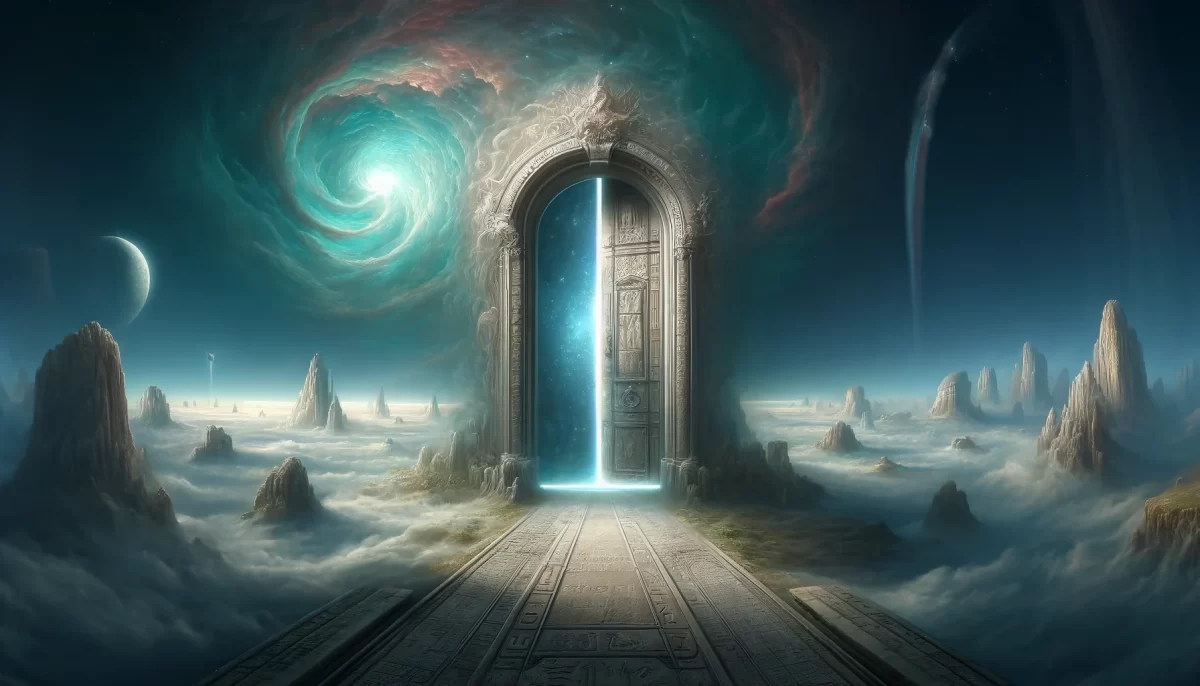

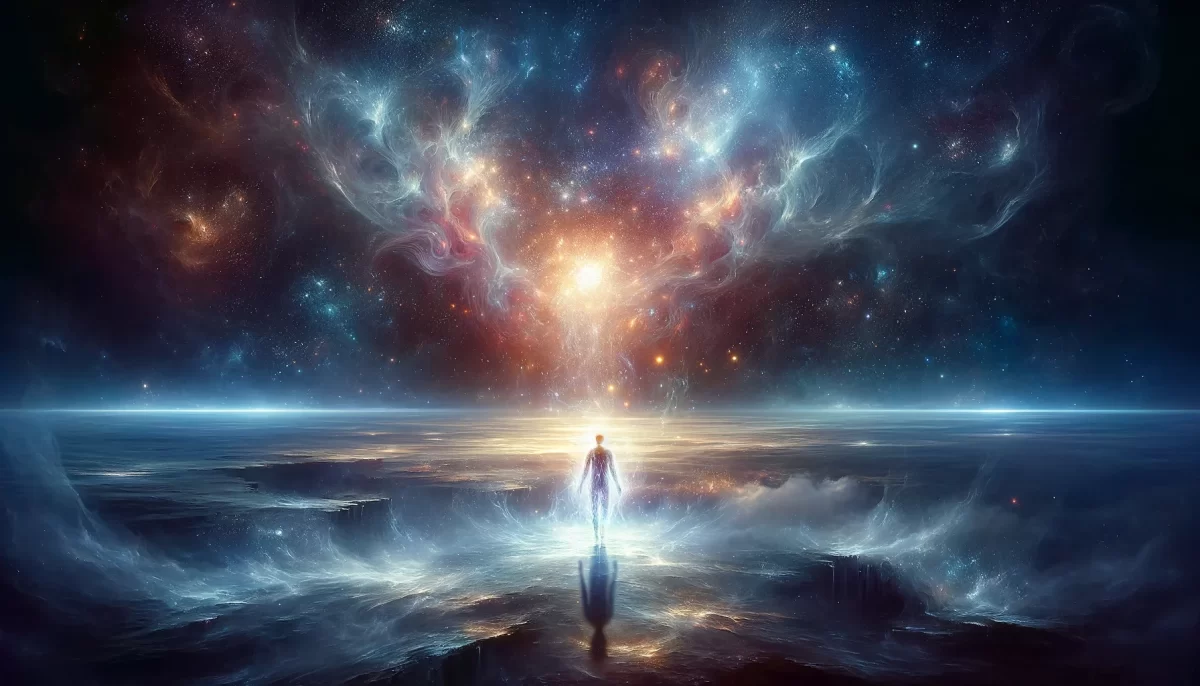
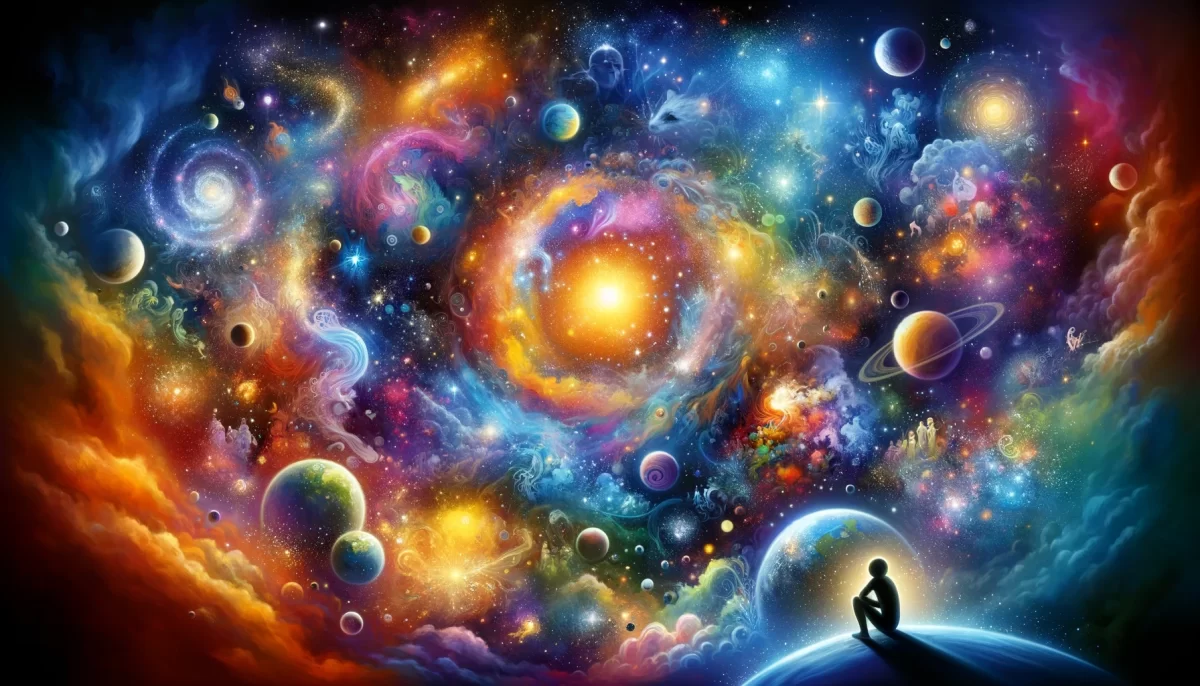
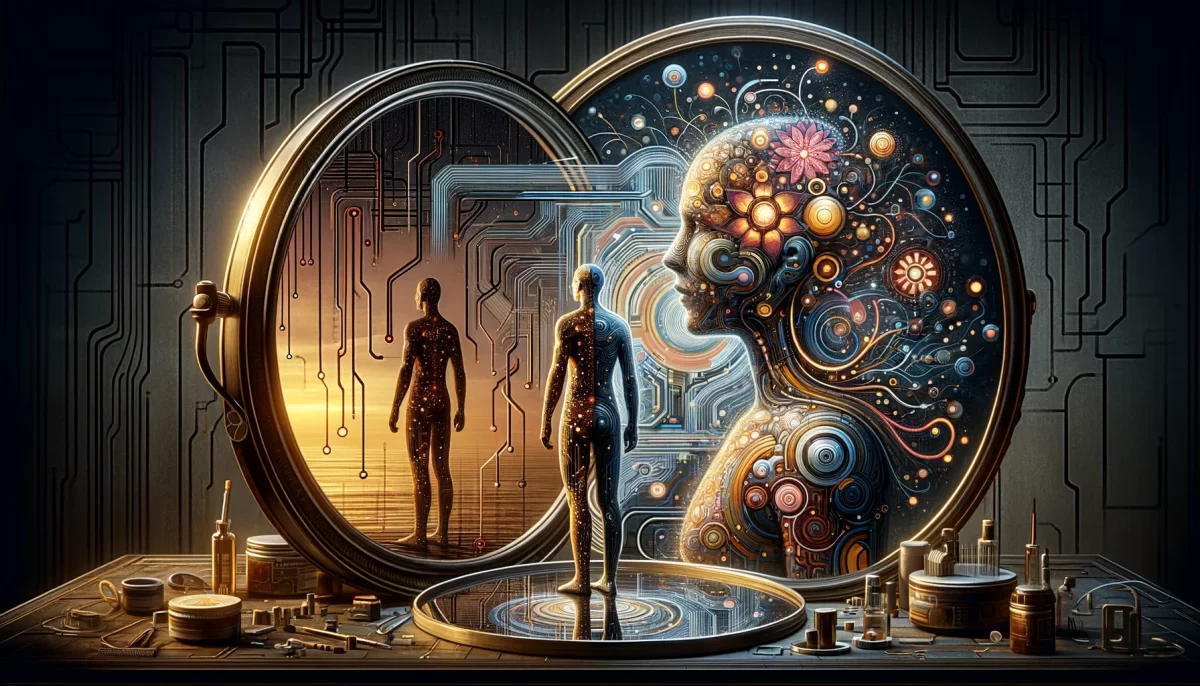
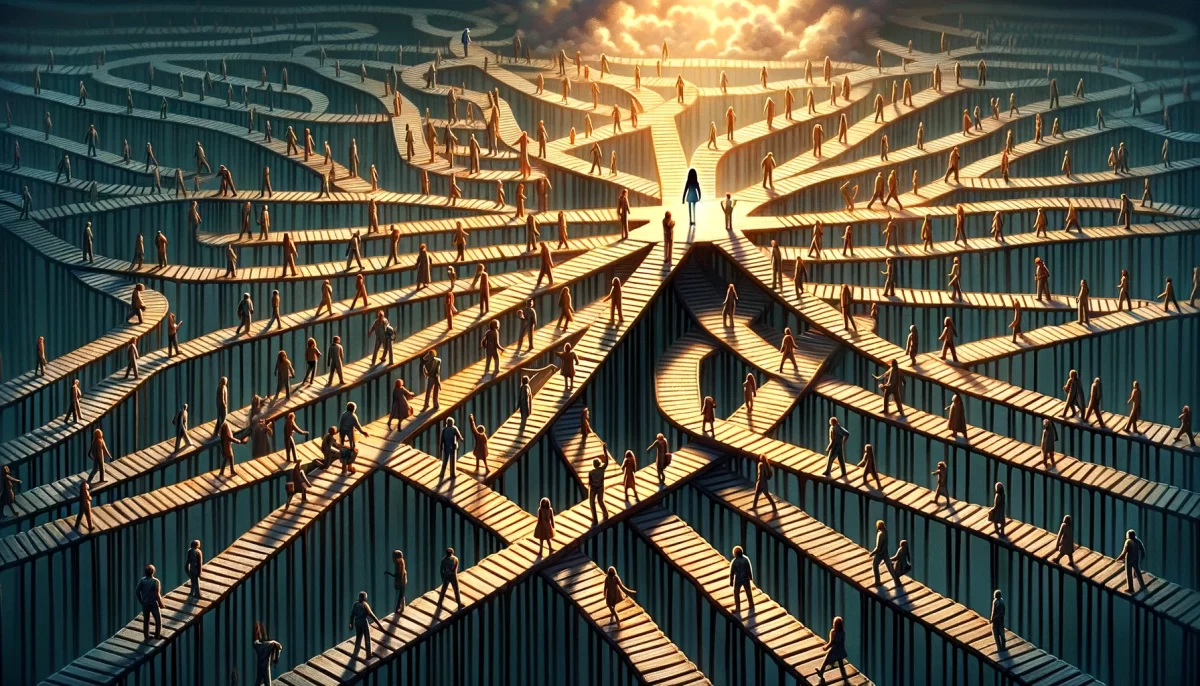
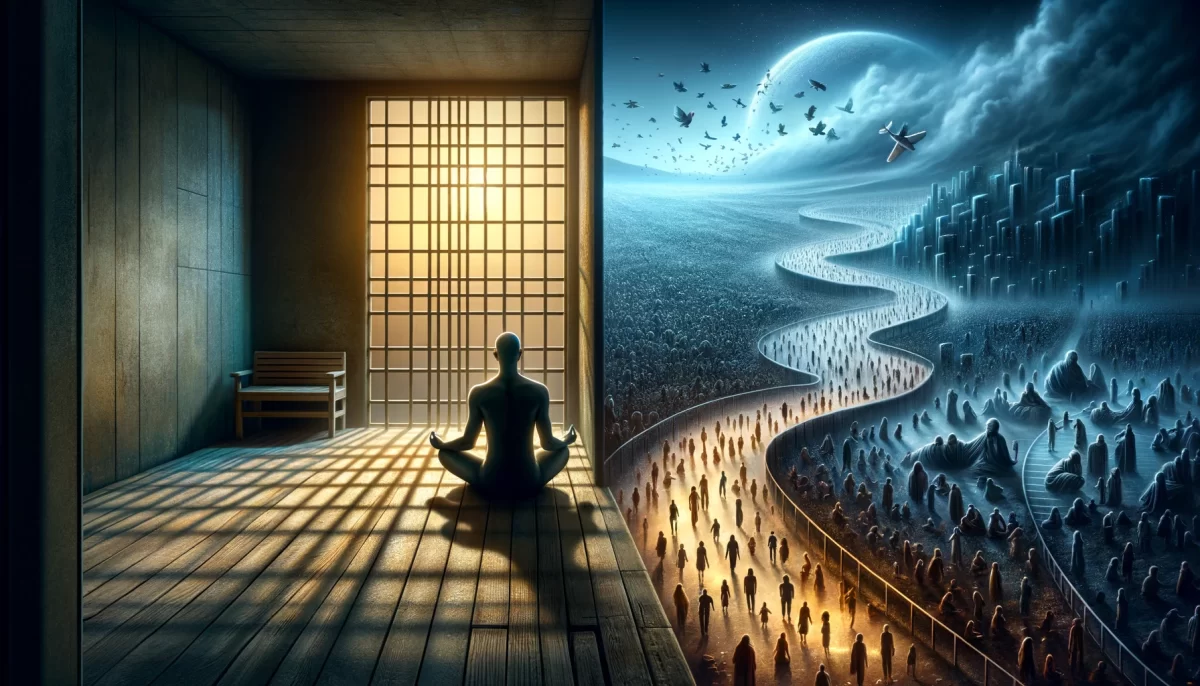

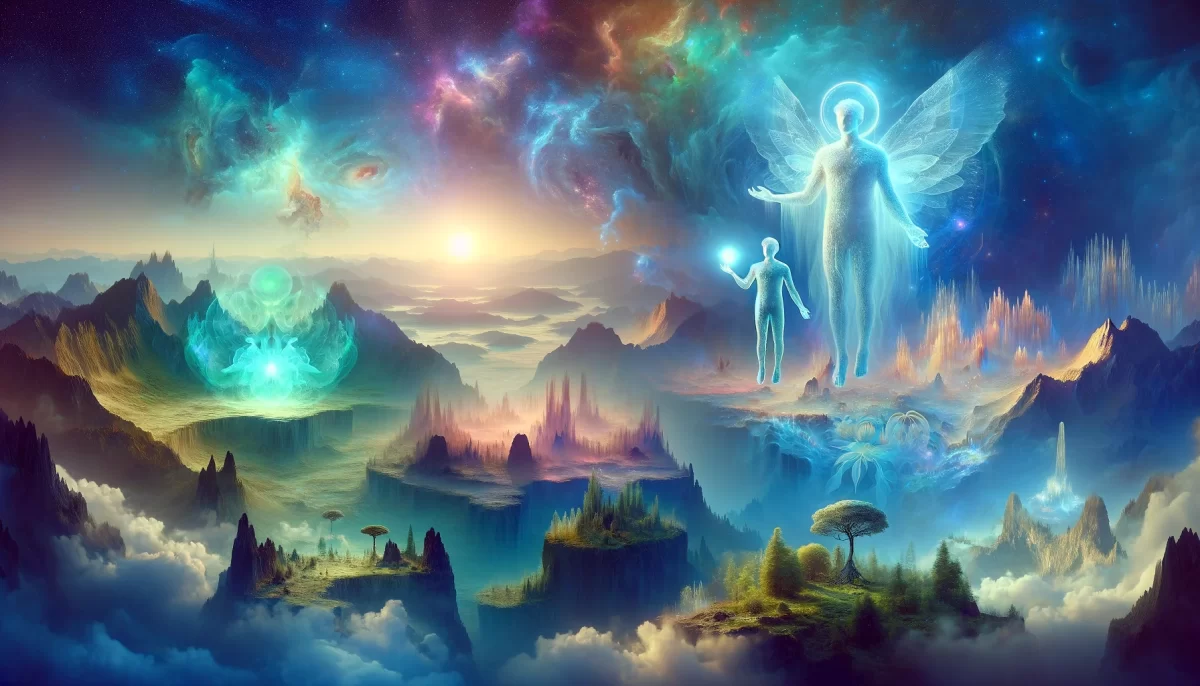
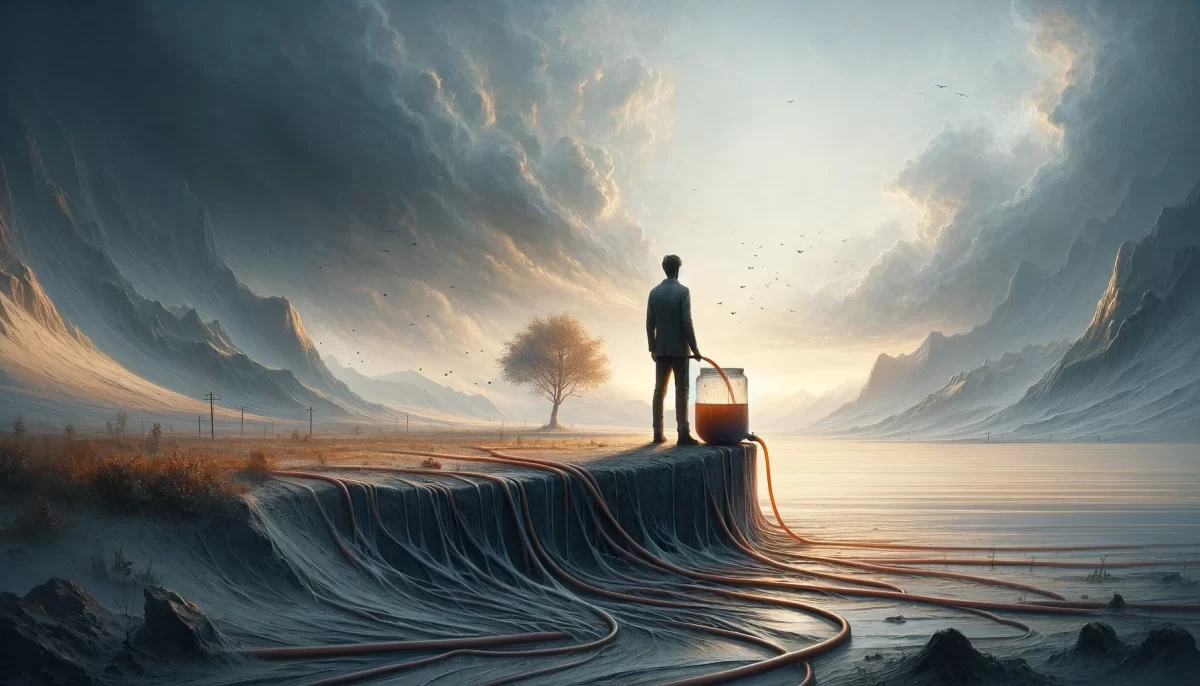
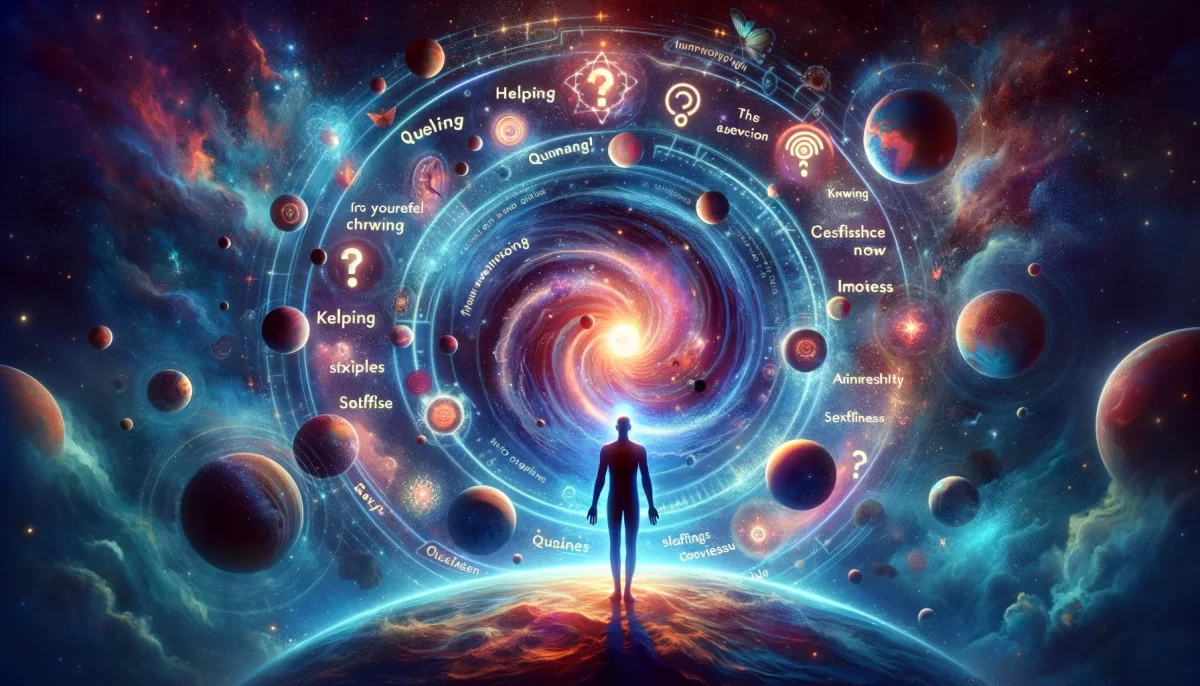

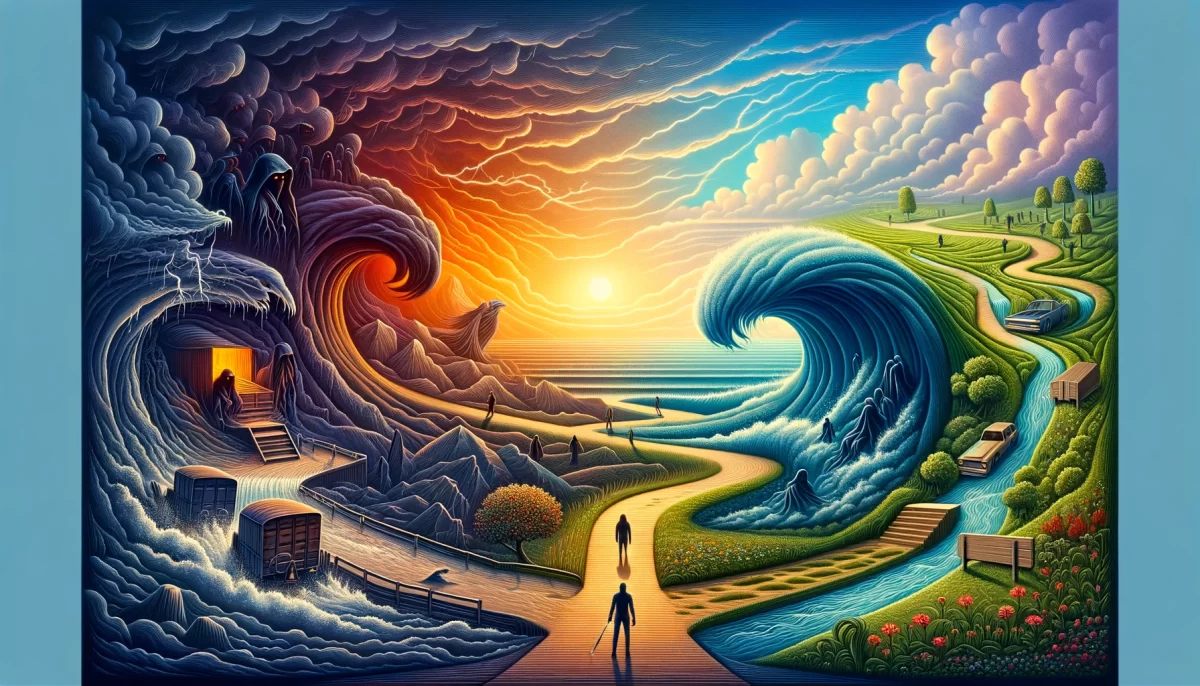
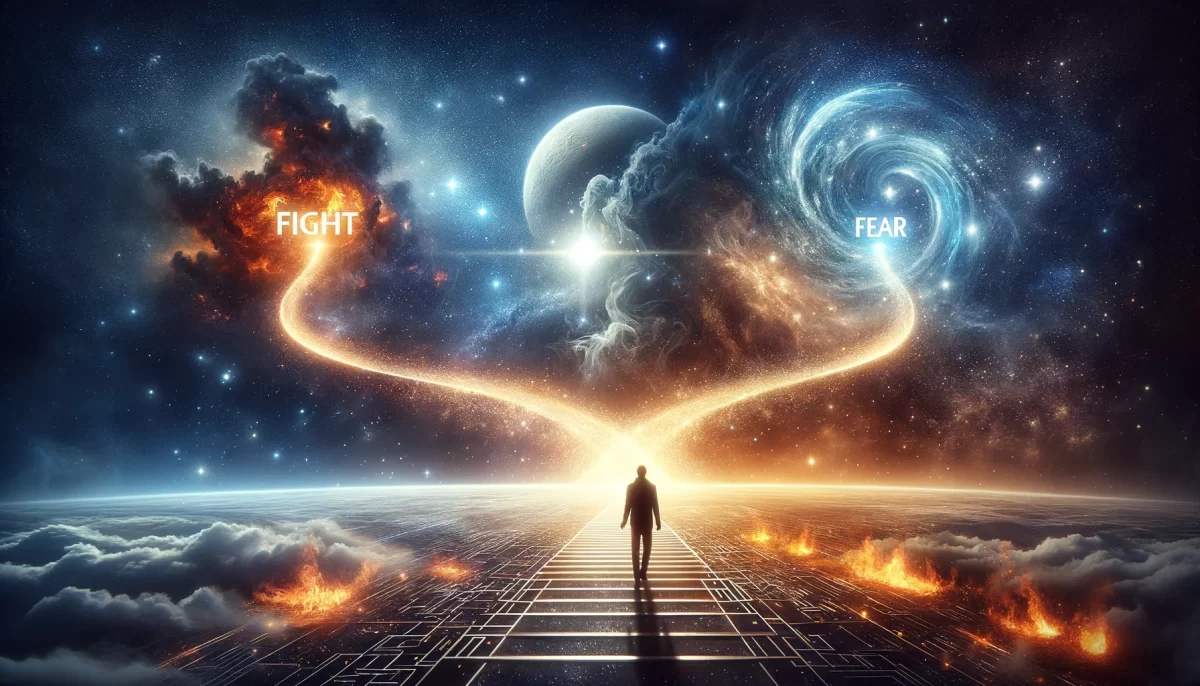

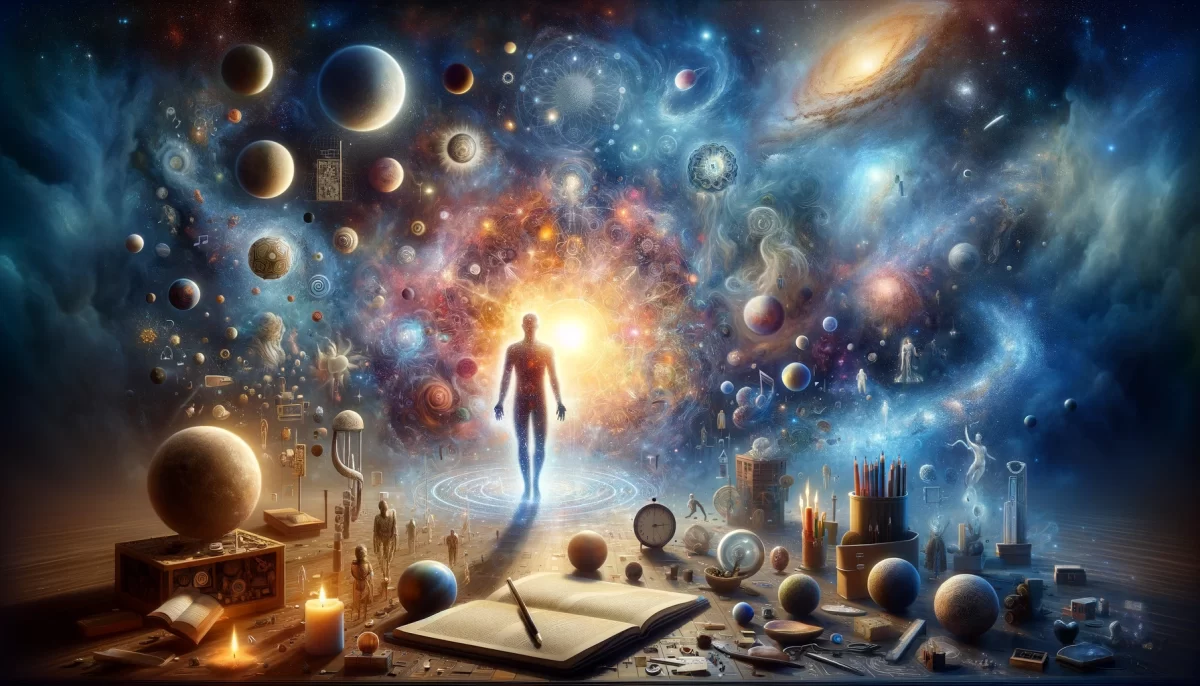
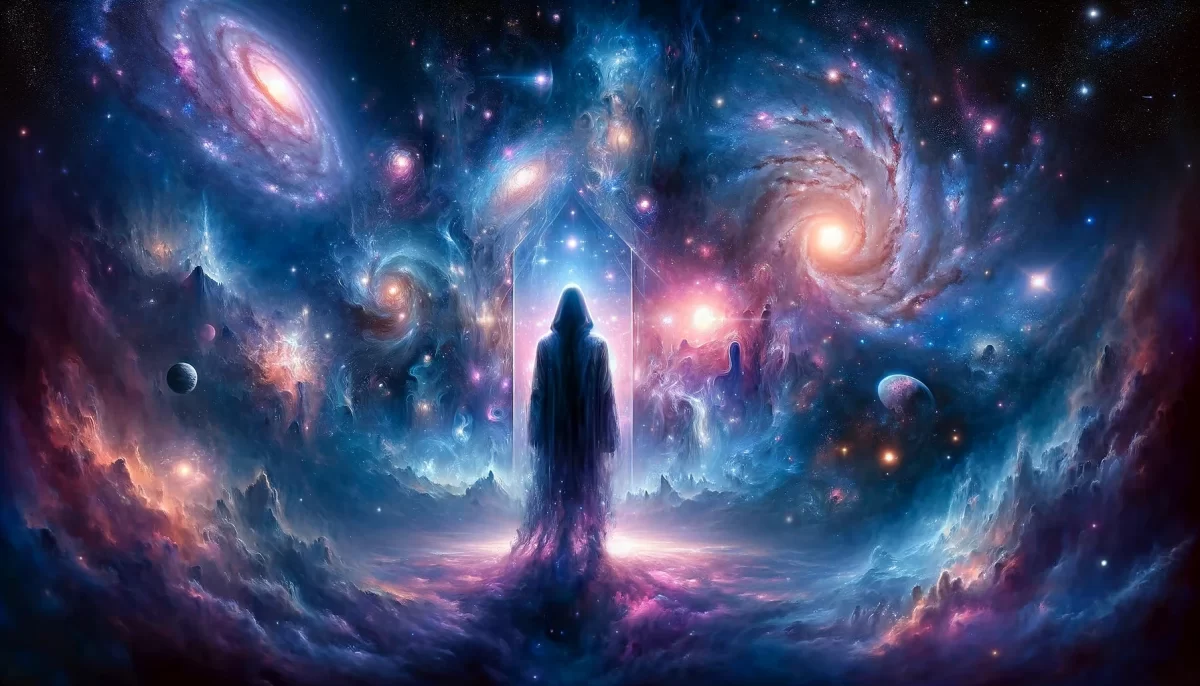
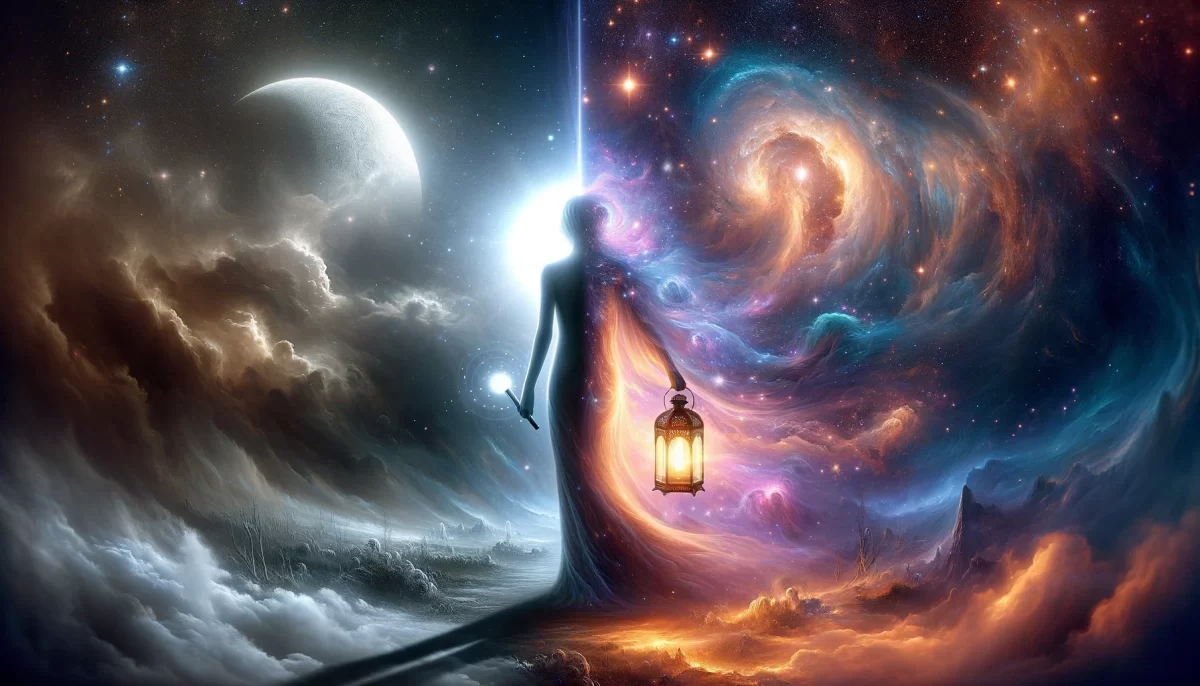
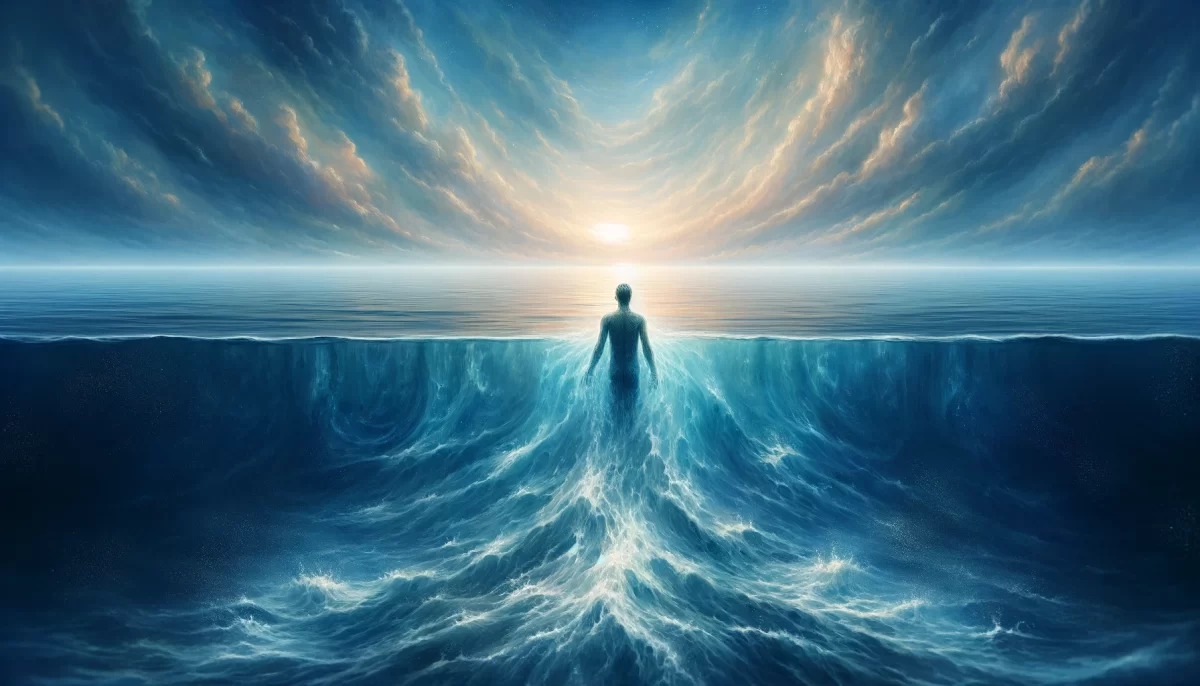
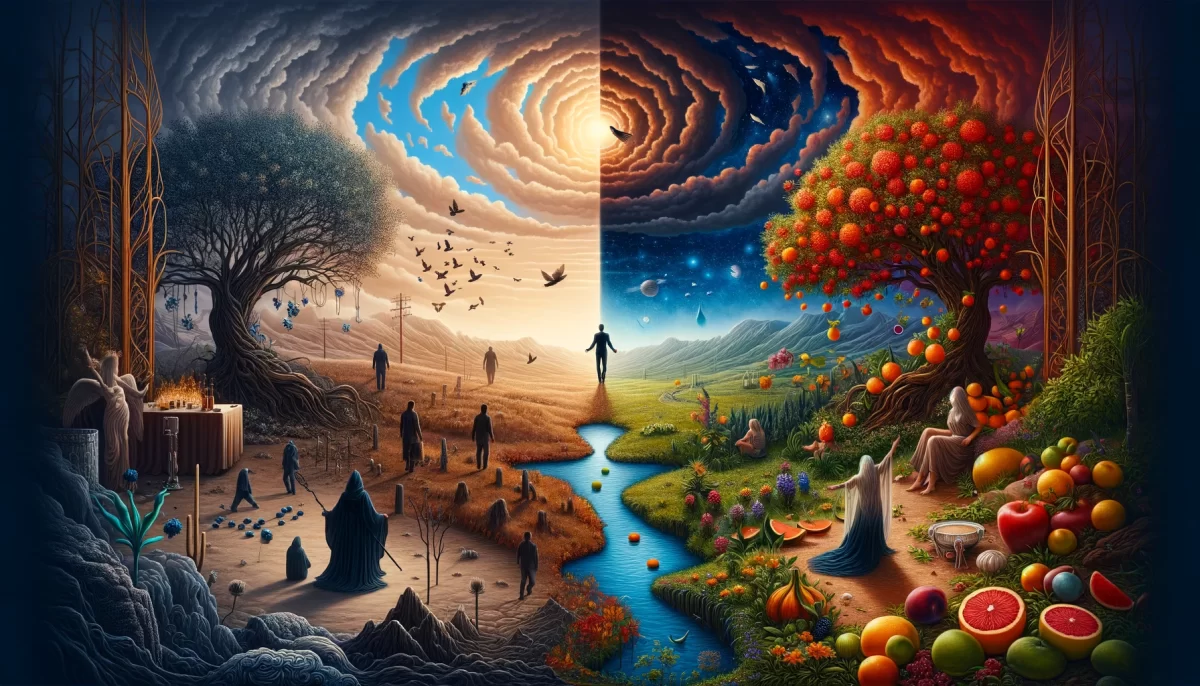
This poem reflects on the idea of the cyclical nature of time and the perception of reality. It suggests that the past is an illusion, and time is a construct created by humans that has no inherent meaning or purpose. The idea of walking through a door from whence one came implies a return to a previous state or a recognition of one’s origins. However, the poem suggests that this return is ultimately futile, as it merely leads to another door and another floor, representing the ongoing cycle of life.
The reference to “spirits” smiling at the speaker suggests a belief in an afterlife or higher power that is benevolent and accepting of the cyclical nature of life. The final lines suggest a paradoxical state of being awake and dreaming simultaneously, implying that reality is subjective and open to interpretation.
Overall, the poem encourages readers to question their perception of time and reality and to embrace the cyclical nature of life.